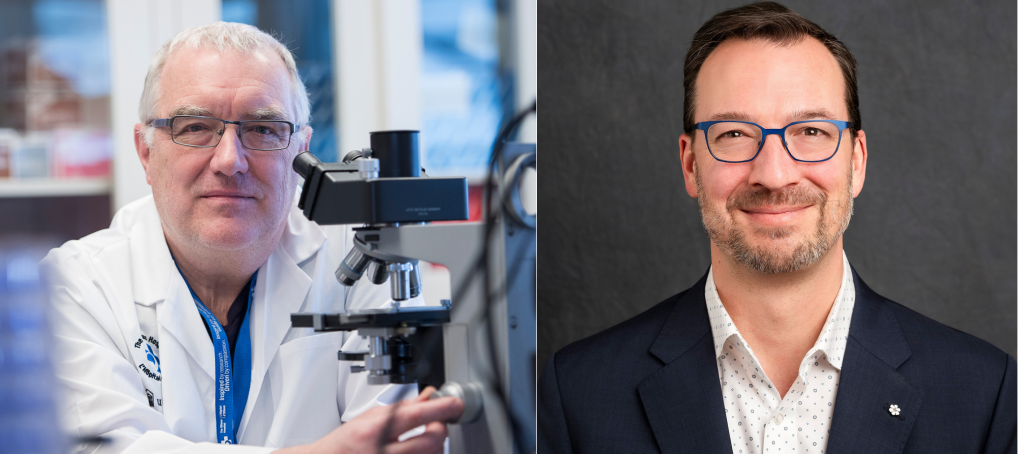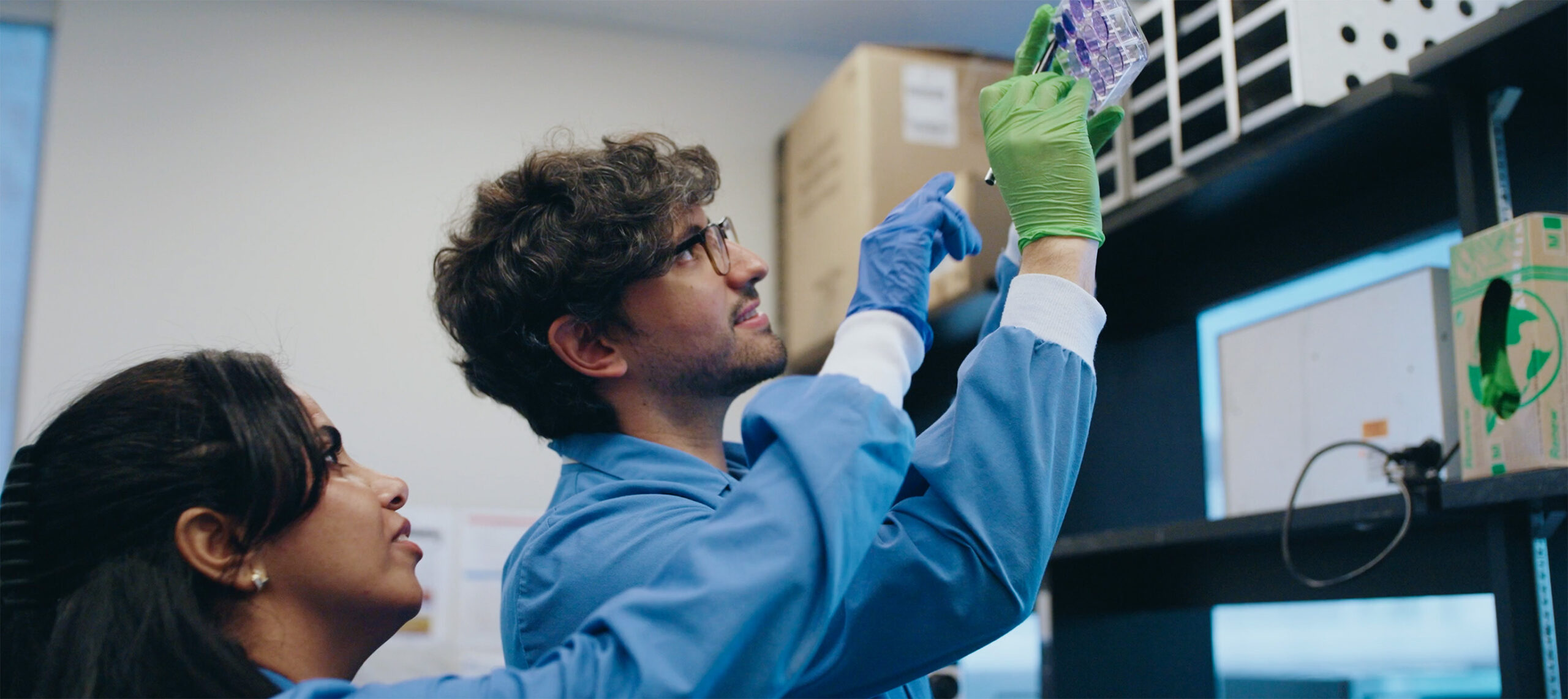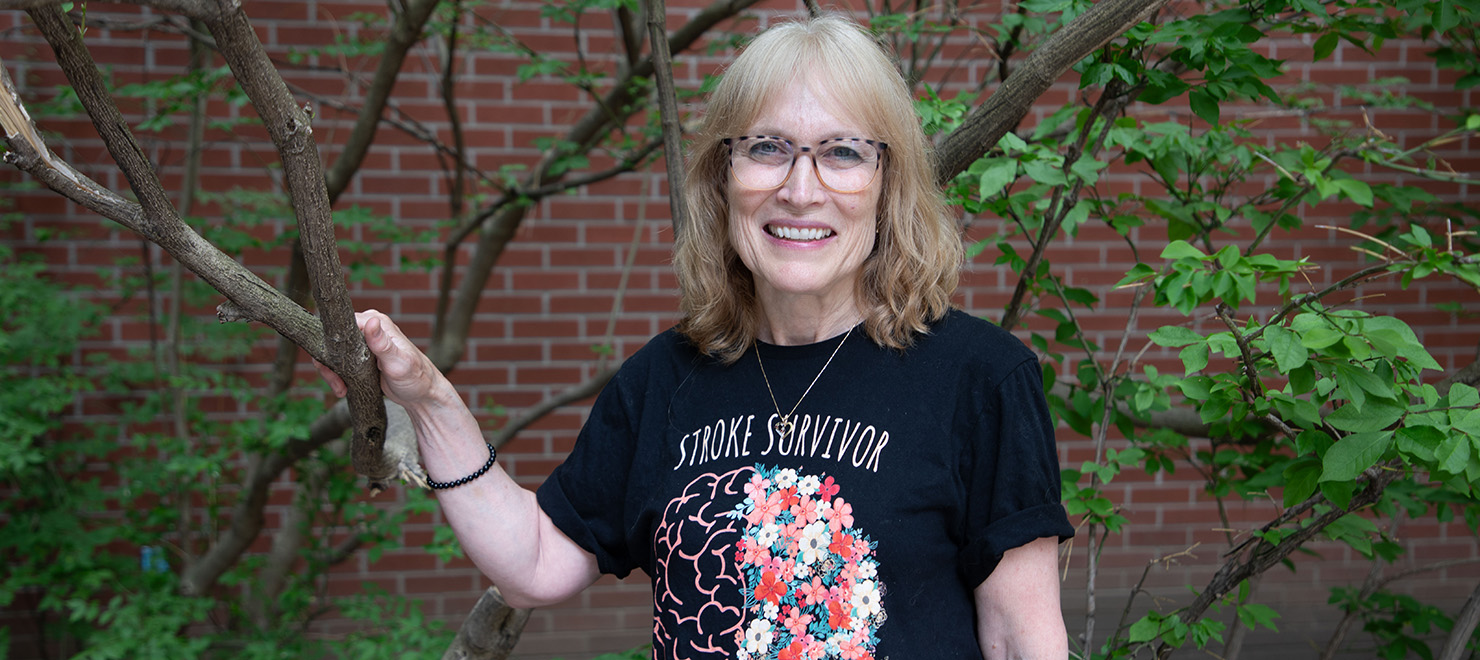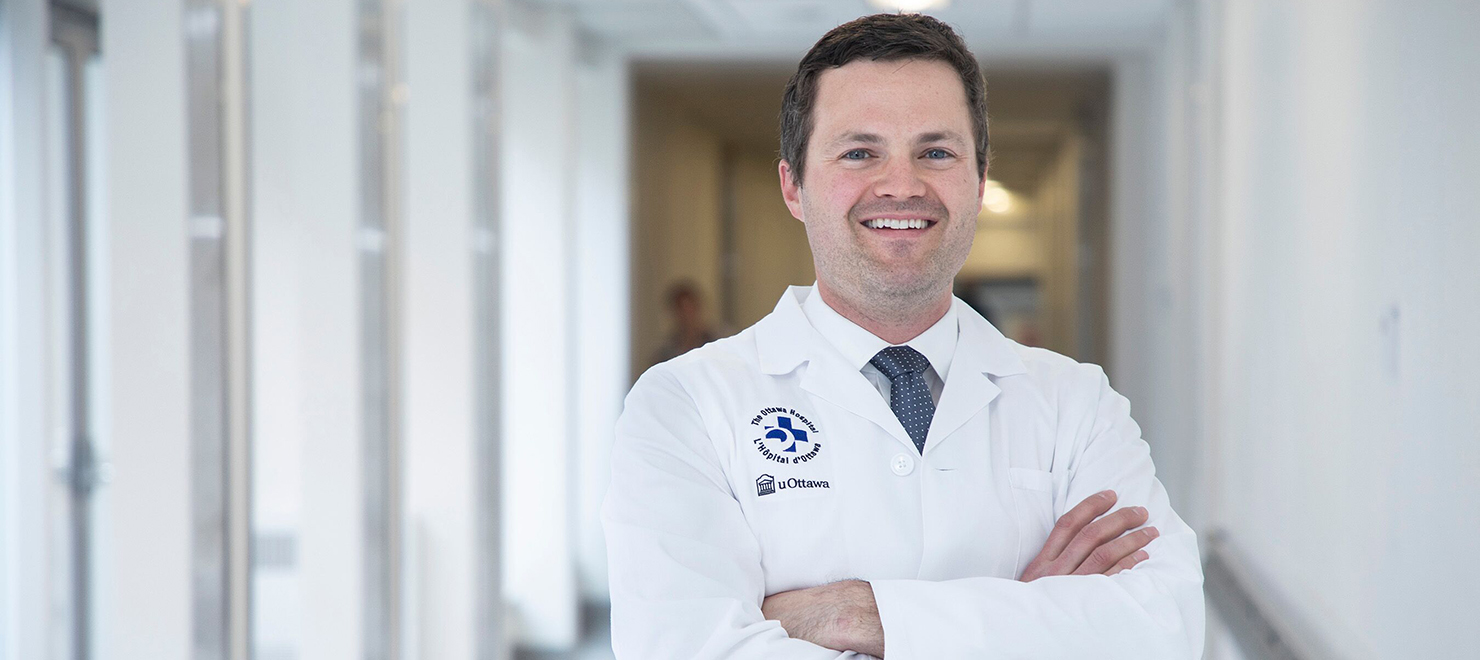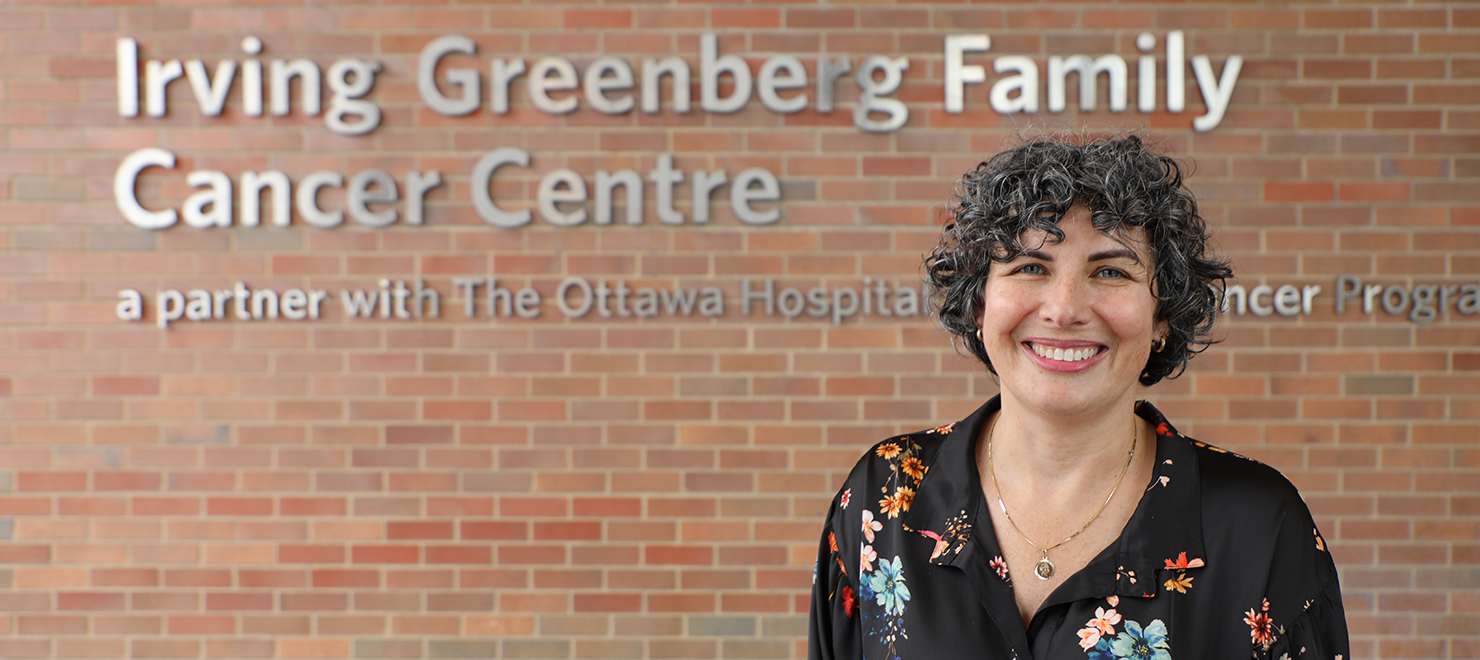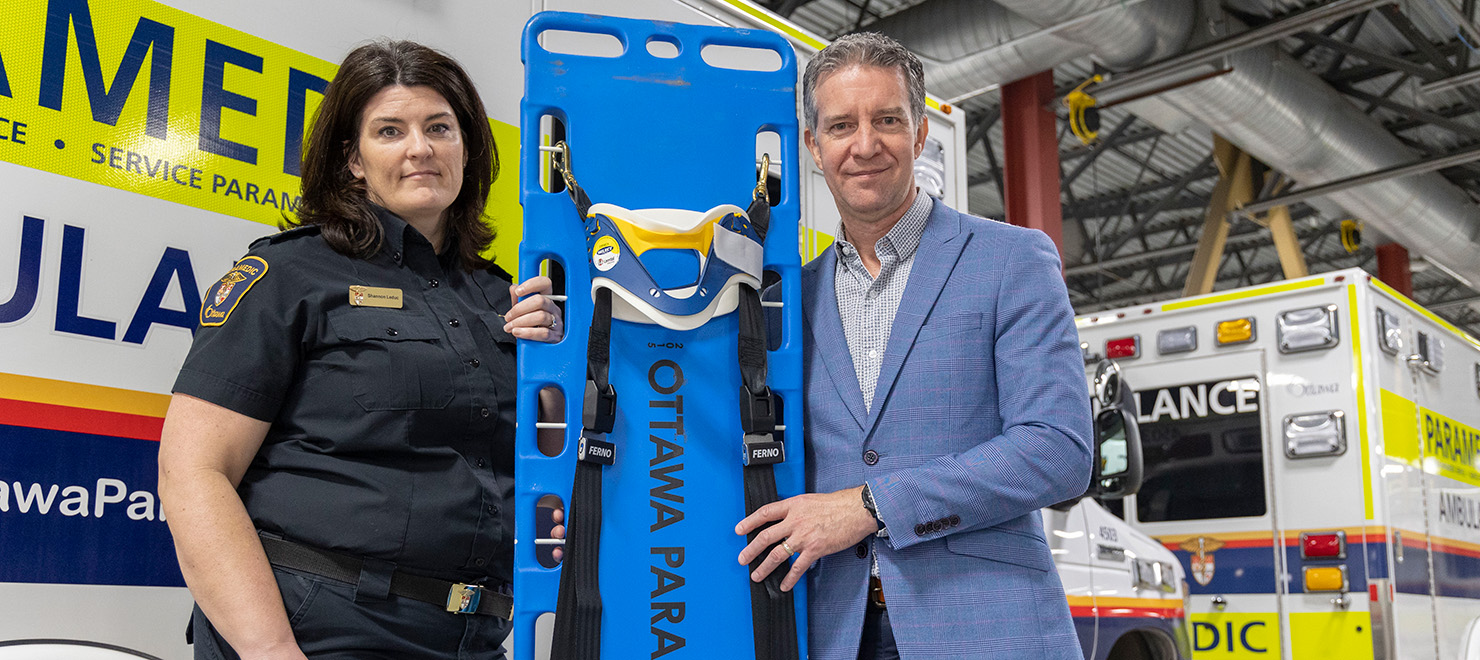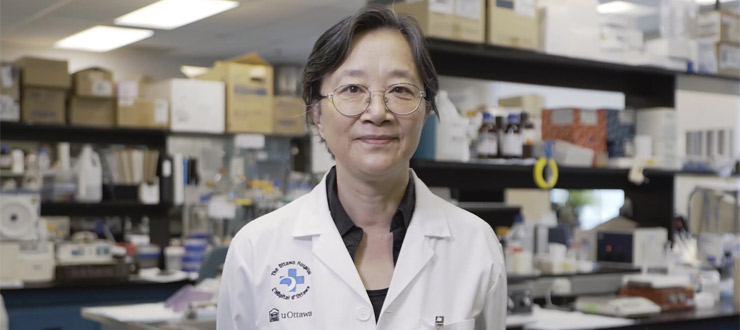
Dr. Xiaohui Zha gained a new appreciation for life while recovering from a stroke. “I realized that if you want to make a difference in the world or in science, you need to do it today, because there might not be a tomorrow.”
Dr. Xiaohui Zha was listening to one of her students present at an international research conference in 2015 when she suddenly lost hearing in one ear, and then the other. Although she didn’t know it at the time, blood was leaking into her brain from a burst blood vessel. She didn’t want to disrupt the presentation, so she quietly walked out of the room before collapsing on the floor.
Dr. Zha, a senior scientist at The Ottawa Hospital and associate professor at the University of Ottawa, later learned that she had suffered a severe kind of stroke, caused by a brain aneurism. Many people don’t survive this kind of stroke, and those who do often have major long-term disabilities.
Dr. Zha was lucky.
“I’ve never accepted defeat all my life, not easily,” she said. “So I knew when I first woke up that I was going to make it, even though the only thing I could move was my eye.”
Dr. Zha’s research success, which earned her the Chrétien Researcher of the Year Award at The Ottawa Hospital Gala on Oct. 28, was spurred on by her illness.
In the early days of her recovery, some people asked if she would retire early, but she refused to consider it.
“Sickness is very depressing and recovery, when slow, is even more so,” she said. “What pulls you up is the excitement, be it your work, your hobby, your dog or your kids. Luckily, I have always enormously enjoyed science and loved my work. This became my powerful crutch to recovery.”
Dr. Zha gradually began to work from home and Skyped into her lab daily, but it was more than a year before she could return full-time. When she did, her colleagues said, it was “full speed ahead.”
In the short time since then, Dr. Zha and her team have published several groundbreaking studies in cholesterol research and two of her students successfully defended their PhD theses.
Her team’s biggest discovery involved a protein called mTORC1. They found that this protein can trick our cells into making excess cholesterol and fat even when they don’t need to. People with obesity and diabetes often have overactive mTORC1, so targeting this protein could lead to new treatments for these diseases and related cardiovascular conditions.
This was judged to be the top research paper of more than 1,300 published in the last year by scientists at The Ottawa Hospital, netting Dr. Zha the coveted Chrétien Researcher of the Year Award.
Dr. Zha credits her success to her “loyal and dedicated” students and postdoctoral fellows, as well as her supportive colleagues. But her illness may have also provided some extra motivation.
“I gained a new appreciation for life,” she said. “I realized that if you want to make a difference in the world or in science, you need to do it today, because there might not be a tomorrow. I also got to see the impact of cutting-edge research on my own treatment, and this has inspired me to work even harder.”
Dr. Zha’s research is supported by generous donations to The Ottawa Hospital. She is also supported by the Canadian Institutes of Health Research and the Natural Sciences and Engineering Research Council of Canada.

Support patient care and research at
The Ottawa Hospital
You might also like…
Dr. John Bell and Stephen Beckta inducted into the Order of Canada
The Ottawa Hospital is proud to share that on December 31, 2025, two members of our team were inducted into the Order of Canada. Congratulations Dr. John Bell and Stephen Beckta.
Everyone at our hospital plays a role in research. Here’s how
It’s Research Week at The Ottawa Hospital. Check out this video to hear from some of the incredible people fuelling our discoveries that are having an impact around the world.
From survivor to supporter: Peer volunteers bring hope to patients recovering from stroke
Drawing on their own lived experiences as stroke survivors or caregivers, volunteers with March of Dimes Canada’s After Stroke Hospital Peer Connections program offer emotional support to those just beginning their recovery journey. Discover the difference they’re making and learn about how you can request support for a loved one — or become a beacon of hope yourself.
Do you have a surgery coming up? Here are five “prehab” tips to help you recover faster
You’ve probably heard about rehabilitation, but what about “prehabilitation”? Prehab is all about getting your body and mind in top shape before surgery so you can enjoy a smoother, quicker recovery. Discover five essential prehab strategies from researcher Dr. Daniel McIsaac.
By thinking differently, this research team is improving the lives of people with cancer
Taking a different approach to clinical trials, the REthinking Clinical Trials (REaCT) program aims to answer some of the most important and practical questions that affect both patients with cancer and our health-care system. Find out what sets REaCT apart and makes the program so special to participants like Beth.
Does this backboard look comfortable to you?
Imagine this: You’re flat on your back, strapped tight to a rigid backboard, unable to move at all. Fortunately, this is no longer the reality for most low-risk trauma patients when they’re brought to hospital in our province. Find out how researchers at The Ottawa Hospital teamed up with paramedics across Ontario to make the journey a lot more comfortable.


 To reset, hold the Ctrl key, then press 0.
To reset, hold the Ctrl key, then press 0.
